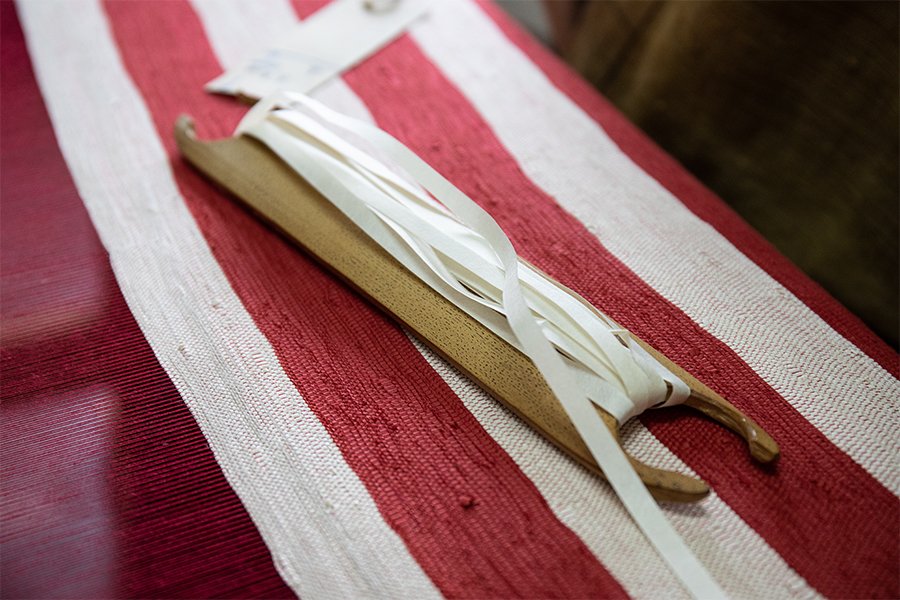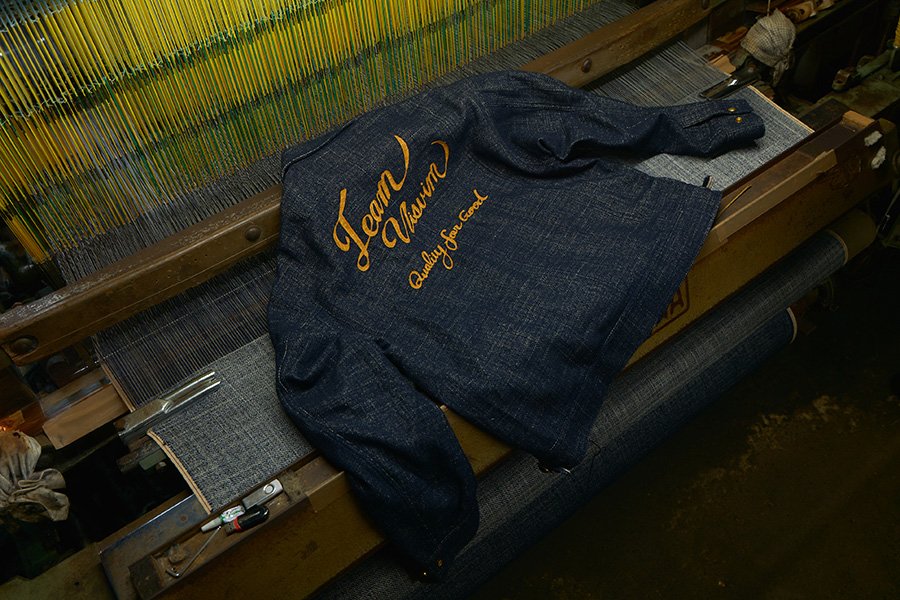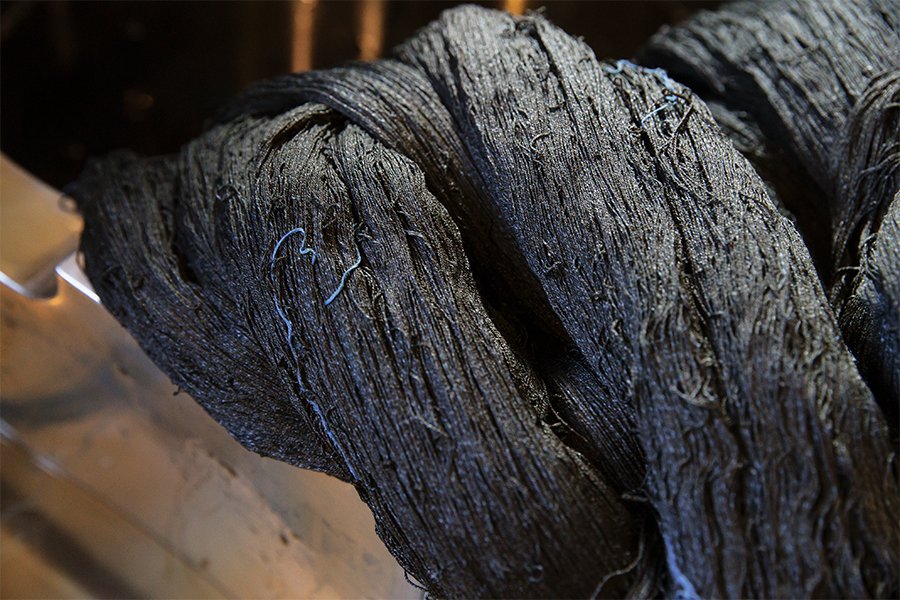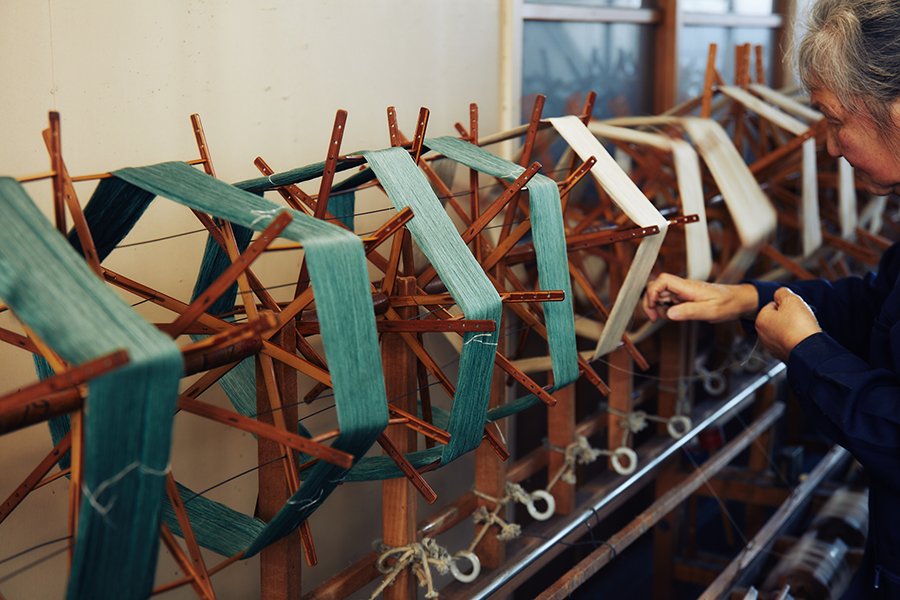Dissertation
BUYI
As an ethnic minority, the Buyi tribe inhabits the southwest province of Guizhou, China. Traditionally known to be an agricultural tribe, many of them still live with customs and practices passed down from ancient times; making their living by cultivating rice, wheat, corn, millet and sugarcane.
| Category: | Material |
|---|
| Date: | 2020.03.24 |
|---|
| Tags: | #buyi #visvim |
|---|
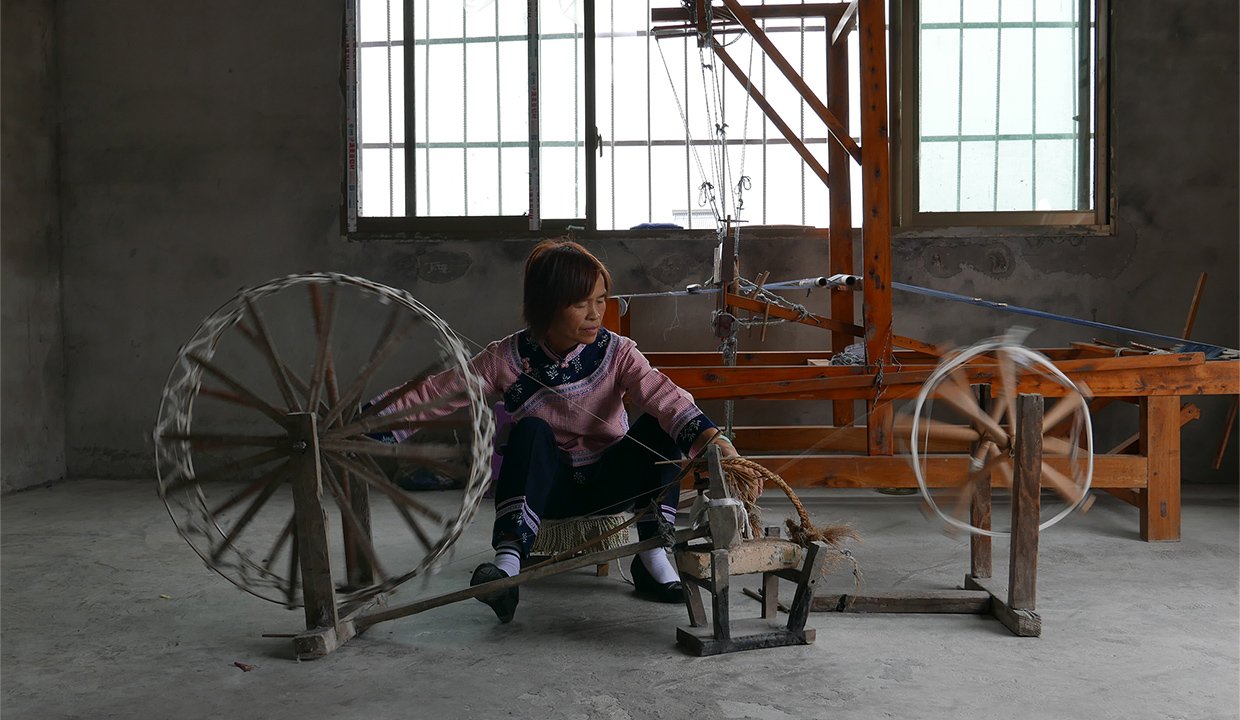
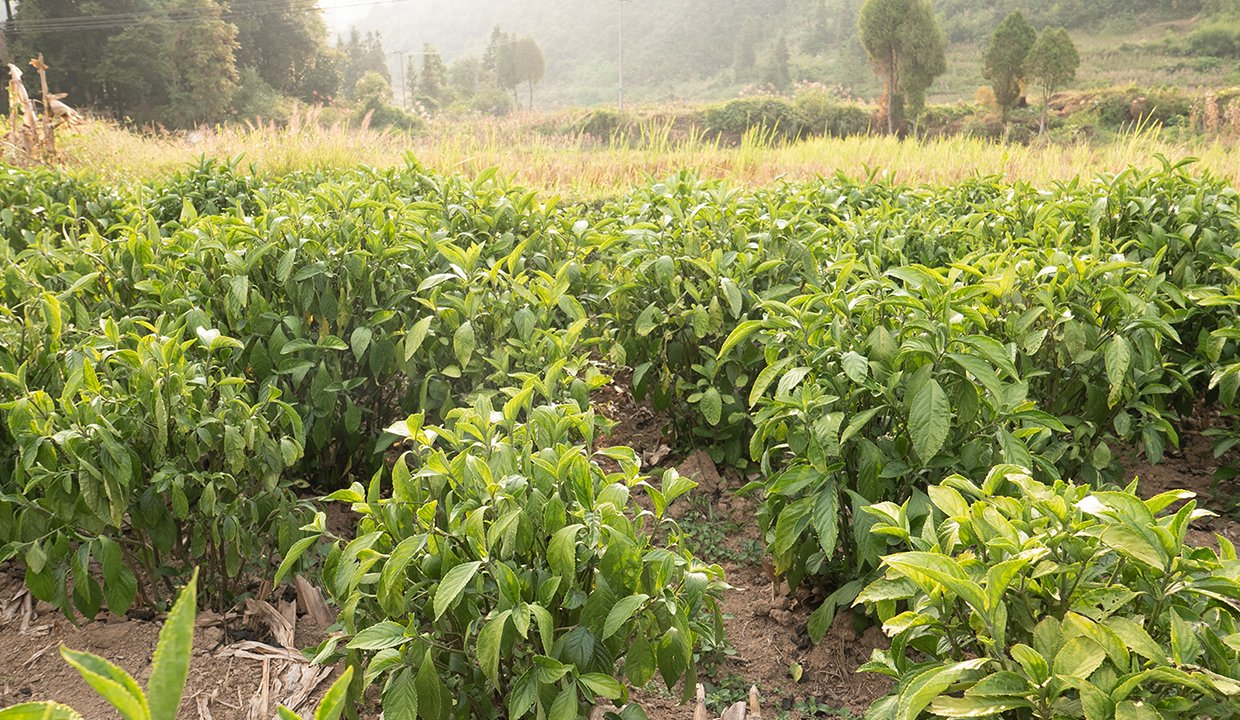
As an ethnic minority, the Buyi tribe inhabits the southwest province of Guizhou, China. Traditionally known to be an agricultural tribe, many of them still live with customs and practices passed down from ancient times; making their living by cultivating rice, wheat, corn, millet and sugarcane.
Among their garments and folk costumes, rōketsuzome (a traditional wax-resist textile dyeing technique, akin to well-known "batik") and elaborate hand-embroidery can be often found. Buyi also harvest plants used as raw materials for their natural dyes and fabric materials; yarn is spun from cotton, woven into cloth. Rōketsu dyeing, indigo dyeing and patterned embroidery are adopted to complete daily goods and ritual wares.
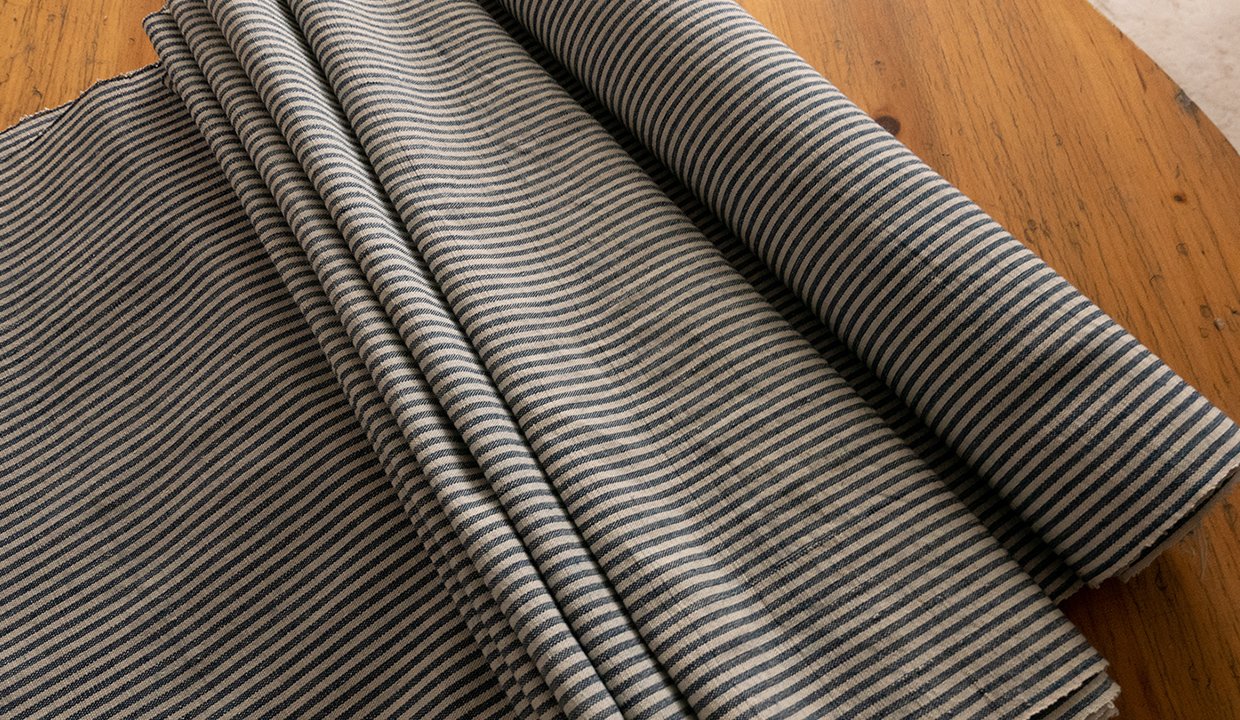
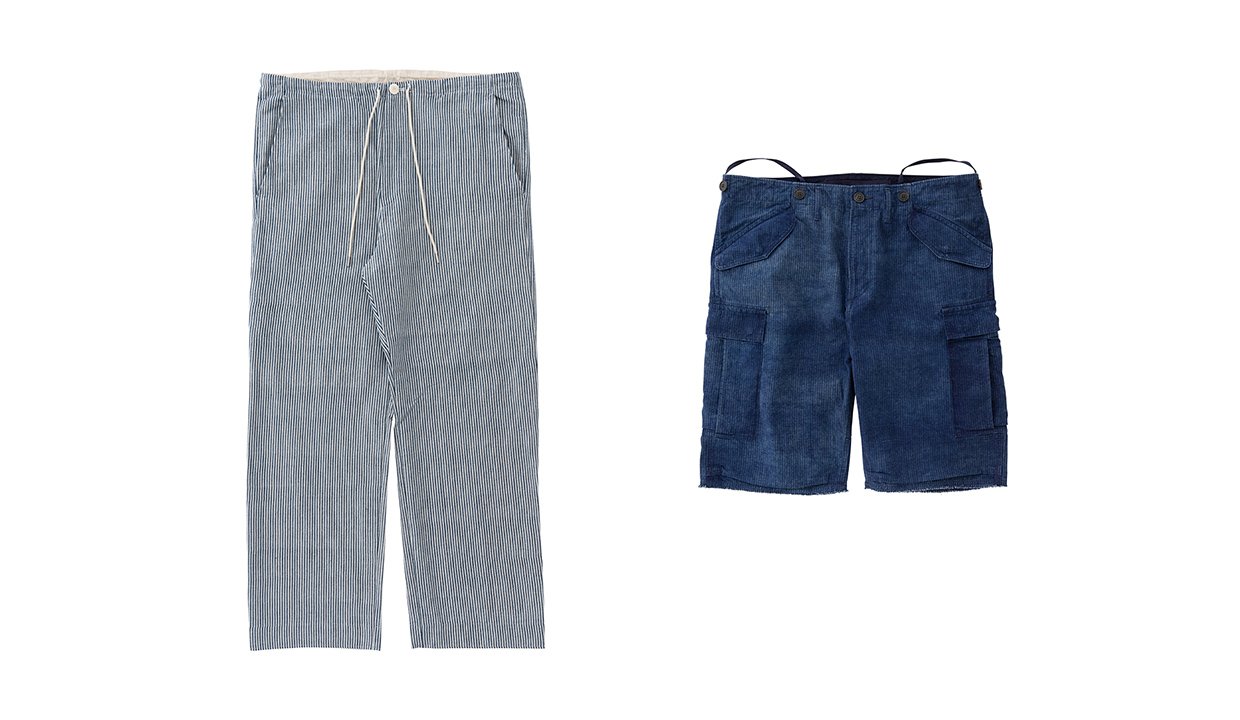

Featured this season, this striped fabric is produced following traditional hand-weaving and indigo dyeing techniques still practiced by Buyi grandmothers in the Qiannan Buyei and Miao Autonomous Prefecture located in the south-eastern part of Guizhou.
Weaving tools used for these fabrics such as spinning wheels and hand-turned looms are still handmade today and require manual operation, making this complete process truly handcrafted. The production is of course very low and is rarely used for commercial purposes.
Considering the efforts from sowing seeds to harvesting fields of plants, and the time and labor to create these textiles, one can easily come to realize the significant value and importance of this fabric for the Buyi people.
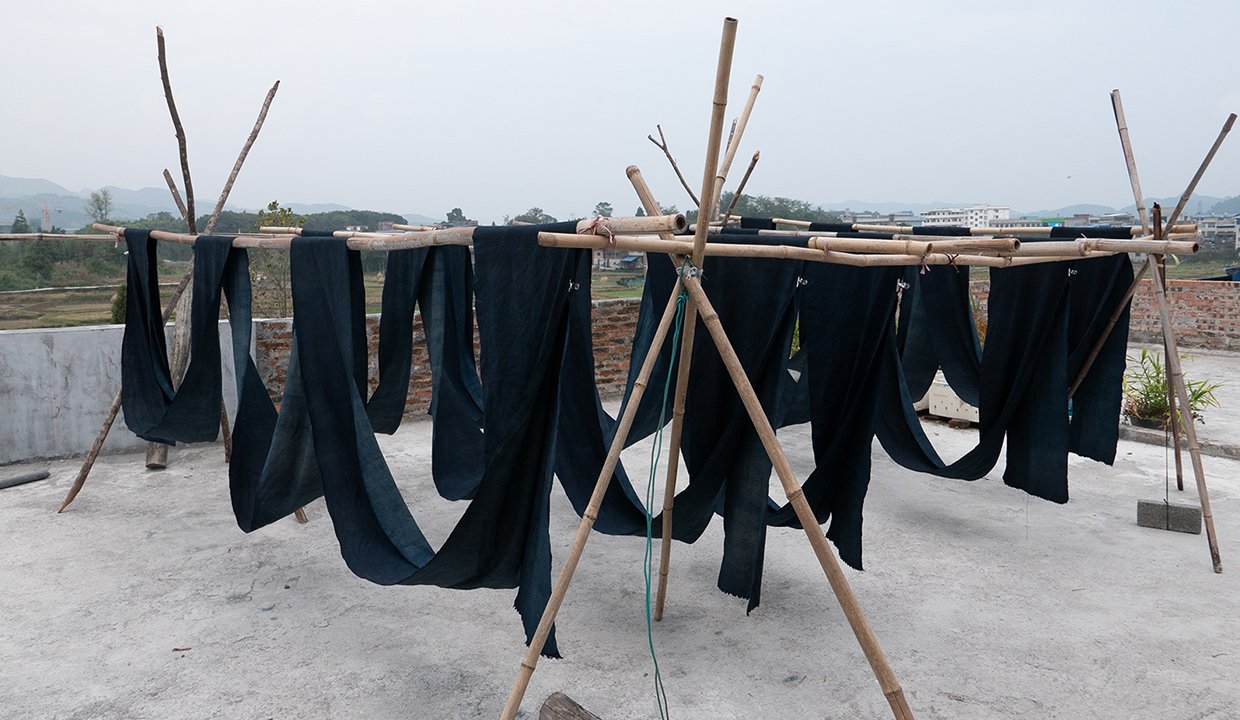
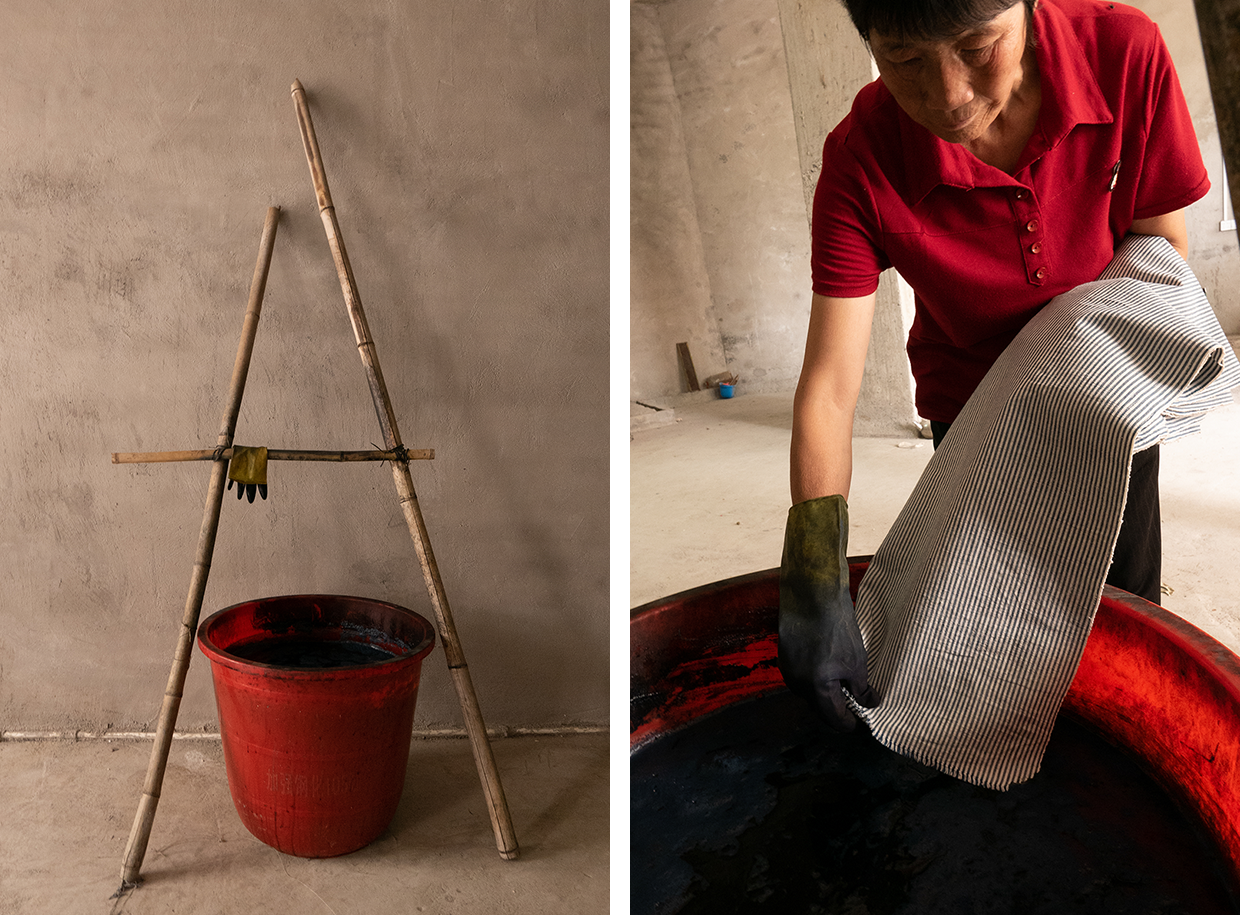
Traditional hand-spinning and hand-woven culture is still being passed down between generations of women in each family; these woven fabrics are used mainly for daily items such as everyday clothing, bedding, and traditional costumes that are still worn today.
While this handcrafted fabric is rooted in daily life; plain and rustic, the meticulous efforts involved in making it, creates a certain warmth and character not found in mass-produced products. It could be said that the prayers for the health and safety of families by generations live on in the soul of these fabrics.
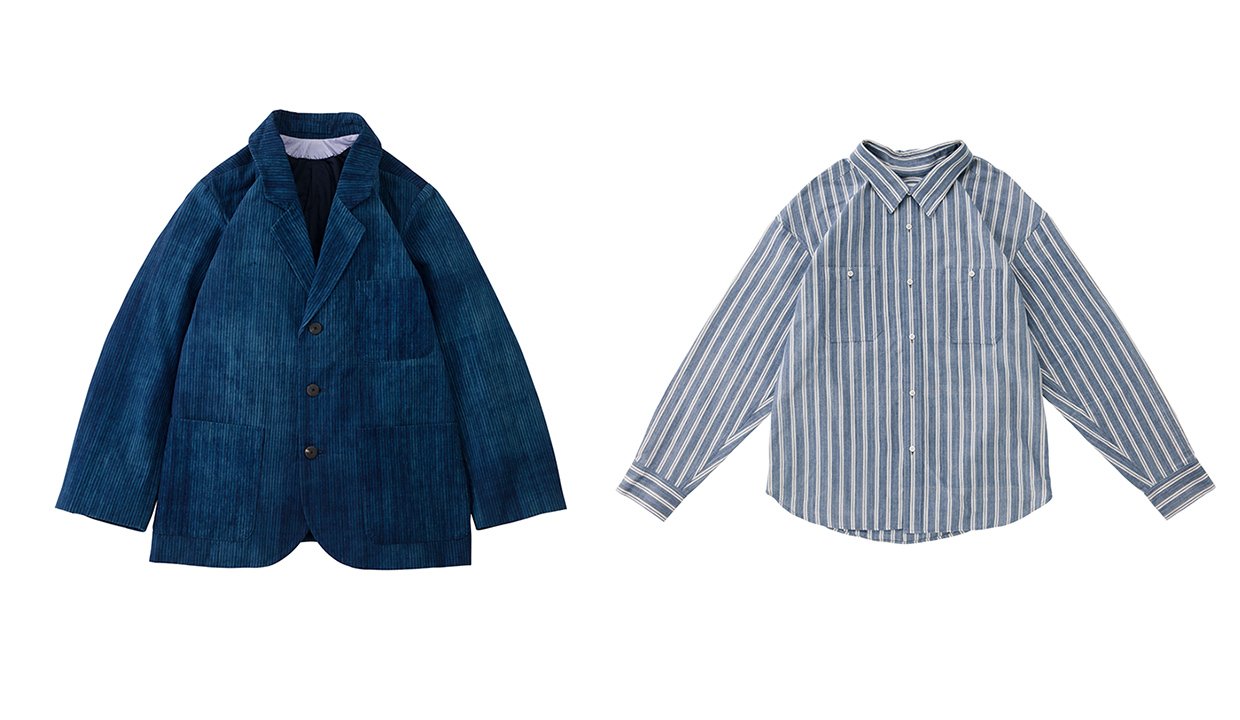
Photo: Angel Chang




